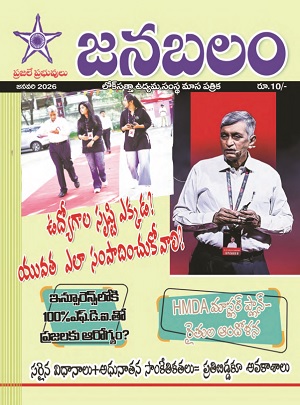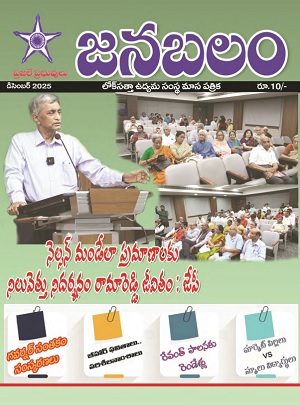The proposal to abolish the State of Jammu and Kashmir and create two new Union Territories by a unilateral decision of Parliament is violative of the basic principles of federalism. If the same principle is applied to the other twenty-eight States of India, then India can become a unitary nation by a government’s diktat. This not only violates the federal principle, but also sows the seeds of division, discord, suspicion and fear in the constituent States of India.
Apart from violating the democratic and federal principles, such overbearing centralisation will seriously erode the willing consent that is the basis of the creation of our extraordinary republic. Instead of cementing unity and integrity of the nation, over centralisation and destruction of federal foundations will weaken the republic and sow the seeds of division and discord, and will strengthen the hands of the internal and external forces which are inimical to a strong and united India.
In a federal polity, States should be regarded as indestructible and they should not be abolished, nor should their boundaries be altered without their consent and local compromise. There is a case to revisit our States’ boundaries, but not by central diktat or unilateral decisions imposed on States. Reorganisation of States, restructuring federal polity, strengthening constitutionalism and cementing unity and integrity of the nation should all be viewed as a harmonious whole, not in isolation as matters of temporary expediency.
We need now an insightful and far-sighted national conversation. Knee-jerk responses ranging from triumphalism and naive belief that the recent steps are a panacea, to apocalyptic visions treating any changes in status quo as signs of impending doom are both polarising and counterproductive.
The issues related to Articles 356 and 35A, and the proposal to create two Union Territories in place of the State of Jammu and Kashmir will be analysed by legal luminaries and constitutional scholars in the coming days and months. Almost certainly the Supreme Court will have to hear the matter and give a finality to it.
But meanwhile we must go beyond legal technicalities and examine the issues on three broad criteria:
· the fundamental rights of citizens of India
· the preservation of unity and integrity of the nation
· and the evolution of federalism in our diverse, robust democracy
Based on these criteria the following approaches are necessary to strengthen the republic and enhance the prosperity and liberty of our citizens.
1. Article 35A and its variants in other States and regions of India violate the fundamental rights, undermine unity and integrity of the nation, and create impediments to economic growth, investment and job creation. Therefore, repeal of Article 35A and other regulations/provisions all over India restricting rights of all Indians is necessary. It should not be viewed in isolation and the same principle should be applied to all of India. Isolation of regions and communities in the misplaced belief of ‘protecting’ them only stunted economic growth, perpetrated poverty, stifled innovation, retarded cross-fertilisation of cultures and ideas, and weakened unity and integrity of the nation.
2. The provisions of Article 370 were clearly intended to be transitional and temporary. However, there are two different sets of issues related to Article 370. Those provisions that spawned legislation like Article 35A are clearly unproductive and dysfunctional in this day and age of global supply chains and disappearing trade barriers. Similarly, the provisions that limit application of fundamental rights in any form, or violate the principles of separation of powers, constitutional checks and balances, universal franchise, democracy and people’s sovereignty expressed through the elected legislatures should be recognised as anachronistic and dysfunctional.
3. However, unity is not uniformity. Unity promotes harmony while enhancing liberty. Uniformity stifles freedom and innovation. If a State chooses to have a different model of democratic government even as national integrity is preserved and the basics of democracy and constitutionalism are adhered to, that is a sign of a robust democracy reflecting its diversity. The UK has different modes of election in Scotland, Northern Ireland, Wales and London city, and for the European Parliament. This diversity and local exercise of freedom to choose a model of government enhances unity and innovation as long as liberties, fundamentals of democracy and constitutionalism are universally applicable in the whole nation-state.
4. It is anachronistic to nominate governors to States in a modern democracy. It is absurd that we overburden the Constitution with detailed provisions regarding the governance models in States and local governments, and even the running of people’s collective enterprises like cooperatives (Part 9B). By insisting on uniformity across the vast and diverse nation of ours, we are ensuring that all Indians pay a heavy price for ill-considered and thoughtless models and decisions. With such an over centralised model, the cost of mistakes is very high, innovation is stifled, and correctives are extremely hard to apply.
This is an excellent opportunity to strengthen national unity and promote local innovation by allowing local models of governance within the bounds of the principles stated above.
I urge all Indians to set aside partisan differences and examine the complex issues involved with clarity, wisdom and a deep commitment to the future of our great nation comprising one-sixth of mankind.
- Dr Jayaprakash Narayan 




No comments:
Post a Comment